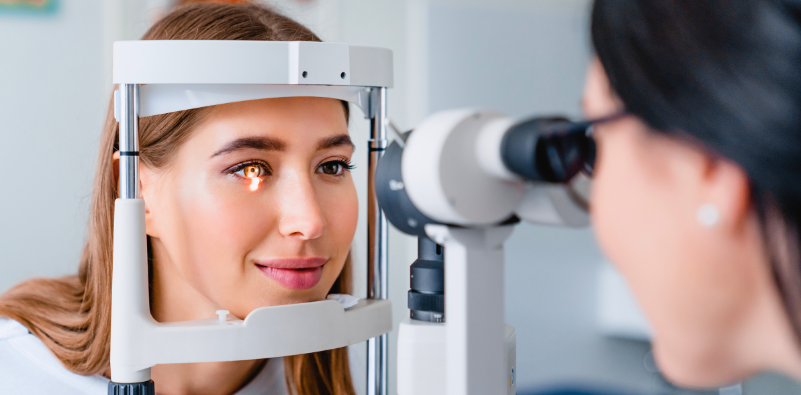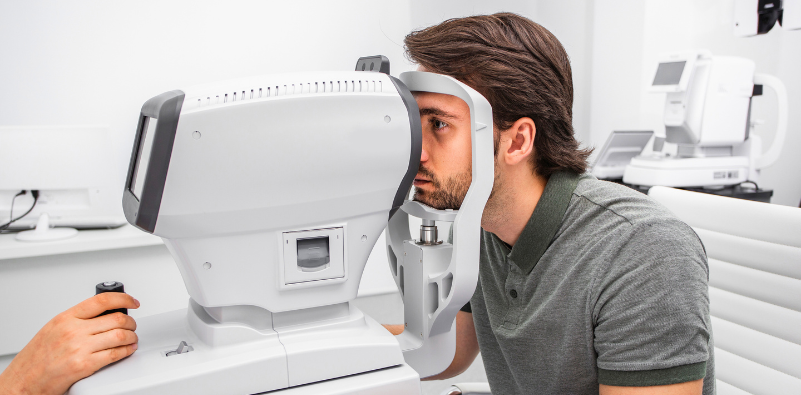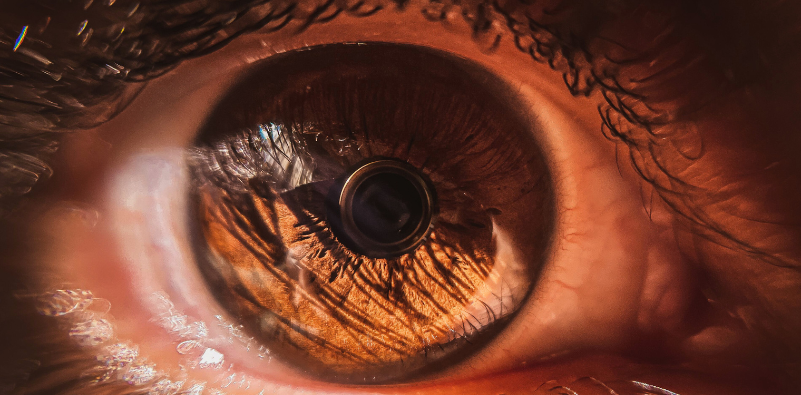What can an eye exam detect about your vision and health?
Start the new year as you mean to go on by prioritising your health, including an often overlooked aspect of wellness: your eye health.
So, what can an eye exam detect? Having them regularly can give you a window into your overall health, catch any issues, and ensure that your prescription is up to date.
The importance of regular eye exams
Regular eye exams are like an annual car service: they’re an opportunity to check for problems before they become an issue. Just like your car, if something is not right, it’s always an easier job if you deal with it earlier and promptly.
Our experienced optometrists are trained to detect early signs of prescription changes and eye conditions that might otherwise go unnoticed until they are quite advanced, such as glaucoma and macular degeneration. Without a regular eye exam, these conditions often go unnoticed in their early stages.
Monitoring overall health and vision

An eye exam can reveal a surprising number of health insights, including conditions such as high blood pressure, diabetes and even certain cancers.
For example:
- Diabetes can cause visible changes in the blood vessels of your retina, that is, the light-sensitive tissue at the back of your eye.
- High blood pressure can also present changes in your blood vessels' appearance.
- An eye examination can also indicate high cholesterol
Keeping your prescription up to date
Vision changes can be gradual, which means even if you think your prescription hasn’t changed, it may have. Part of a regular eye exam assesses your vision and measures your prescription. Outdated prescriptions can lead to:
- Eye strain, tiredness and headaches
- Difficulty reading or working on digital devices
- Potential safety risks, especially while driving
Advanced testing with OCT

Optical Coherence Tomography (OCT) is at the cutting edge of eye examination technology, which is why we have invested in this diagnostic equipment in our practices. It’s a quick and non-invasive eye scan that provides detailed 3D cross-sectional images of your retina, which traditional eye exams can’t typically see. OCT scanning can help us:
- Detect early signs of eye diseases such as glaucoma and macular degeneration, sometimes up to 5 years earlier than a standard eye exam alone. It also allows us to see structures not visible in a standard eye examination.
- Take accurate measurements of your retinal layer thickness
- Monitor the progression of existing eye conditions
- Identify even the smallest changes to your retinal structures
An OCT eye scan is particularly useful for patients with a history of eye conditions or those at higher risk of eye-related health issues. In short, it's an invaluable piece of the puzzle when it comes to peace of mind about eyecare.
How often should you have an eye test?
For most healthy adults, having an eye exam every two years is sufficient. If you have vision problems or are over 60, or have children under 16, it’s advisable to have annual eye exams.
*Our skilled optometrists will in every case, take the time to discuss your lifestyle, medical history, and individual needs, as well as carry out all the necessary tests during your eye exam, and will advise and recommend how often you should have an eye test.
Book your eye exam today
As you embrace the new year, make booking your eye exam with us a priority. We offer a range of services, including 3D OCT eye scans and private eye tests, all delivered with a commitment to professionalism and excellence.











